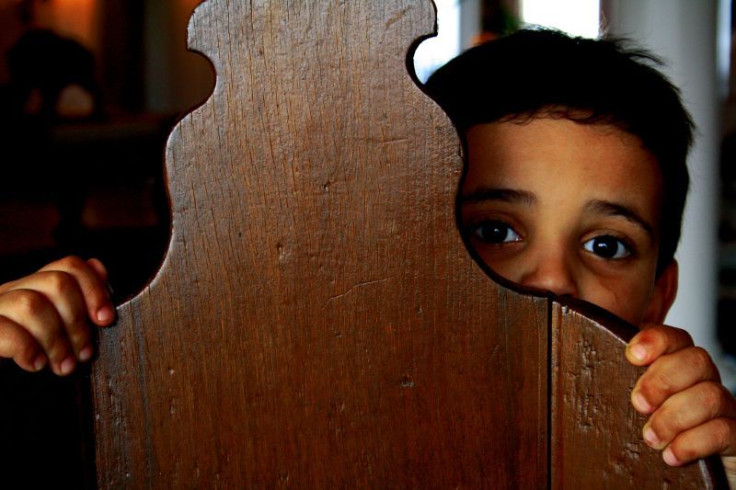Parents' Anxiety Will Likely Be Passed On To Their Kids, But Family-Based Interventions Can Help

Anyone with an anxiety disorder can tell you just how debilitating it is. Days are spent avoiding the object of anxiety, while worrying you may encounter it anyway, and nights are often spent with little sleep because of pent up, nervous energy. But if you’re a parent suffering from an anxiety disorder, your mental health may have repercussions on your kids. In fact, children of parents with anxiety are at increased risk of developing anxiety themselves. A new study conducted by researchers at the University of Connecticut found that by intervening early, they can stop anxiety from spreading to the next generation.
UConn Health psychiatrist and leader of the study Golda Ginsburg says her research began when parents came to her trying to prevent their anxious habits from passing to their kids. Among them was a woman who refrained from driving long distance in fear of having panic attacks, a man with fears of contamination that prevent him from using public bathrooms, and a woman who will not attend church because of her fear of enclosures. All three were parents who knew what it was like to struggle with anxiety on a daily basis, and did not want the same for their children.
So Ginsburg and her colleagues at Johns Hopkins University went to work developing and testing a one-year therapy intervention for 136 families. Each family had at least one parent who suffered from anxiety, and a child between the ages of 6 and 13.
Publishing their findings in The American Journal of Psychiatry, the researchers found very promising results for their family-based interventions. Out of all their participants who underwent the intervention, only 9 percent of children developed anxiety after one year. Out of those that were given interventions via written instruction, 21 percent developed anxiety, and out of those who received no therapy at all, 31 percent developed anxiety after a year’s time.
“The findings underscore the vulnerability of offspring of anxious parents,” Ginsburg said in a recent press release. “If we can identify kids at risk, let’s try and prevent this.”
According to the study, previous research has found that anxiety is generational; up to 50 percent of kids who have anxious parents are likely to develop anxiety as well. There has been a movement to help those at risk of developing anxiety within schools, but so far they have not achieved great success.
Several components contribute to whether a child will develop anxiety, including traits before birth and life experiences. As expected, a child who experiences many negative situations growing up is more inclined to have anxiety, but Ginsburg says that part of anxiety can be learned as well. If a parent exhibits anxiety behavior, a child, who is a natural sponge for all things their parents do, could adopt these behaviors as well.
For the study, the researchers delegated different intervention-types to different families; some were exposed to eight-hour-long therapy sessions with a professional over the course of two months, while others were just given a pamphlet regarding anxiety and how to treat it. The remaining families did not receive any form of intervention.
Those who did receive therapy were taught how to recognize the signals of anxiety and stop it in its tracks. One of the methods, Ginsburg said, was a reality check, or evaluating whether a fear was legitimate or unhealthy.
"We taught the kids how to identify scary thoughts, and how to change them," Ginsburg said. For example, if a child is afraid of cats and encounters one in the street, the child can first identify the scary thought: "That cat is going to hurt me." Then the child can test that thought: Is it likely that the cat will hurt me? No, the cat doesn't look angry. It isn't baring its teeth or hissing, it's just sitting there. OK, I can walk past that cat and it won't do anything.”
Ultimately, children who learned these practices had lower levels of anxiety overall.
The researchers are hopeful for the future of their project. Having just received funding from the National Institutes of Health to see if these results persist over time, Ginsburg and her team are focusing on providing regular check-ins with families that have these issues.
“I’d say we need to change our model of mental health to a checkup method,” Ginsburg said. “Like going to the dentist every six months.”
Source: Ginsburg G, Drake K, Teetsel R, et al. Preventing onset of anxiety disorders in offspring of anxious parents: a randomized controlled trial of a family-based intervention. The American Journal of Psychiatry. 2015.



























